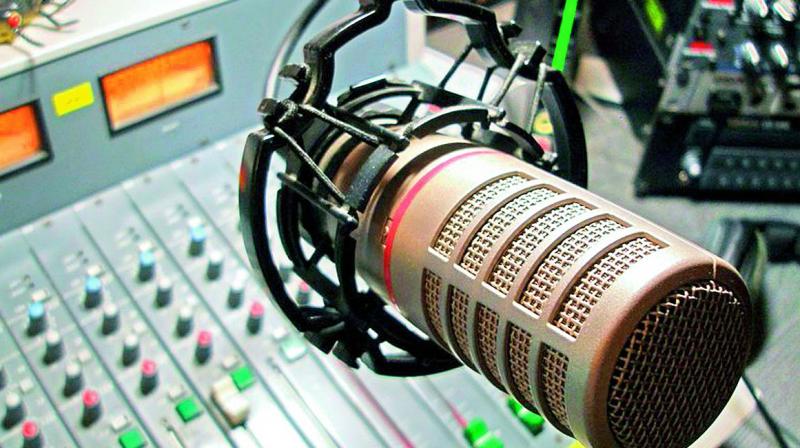The exit of radio commentary

Gathering together inside a hurdle, straining hard to listen, grasping the minute details, a group of young kids jump to cheer as India wins the match! A memory straight out of our childhood days, when commentary meant radio commentary — be it cricket or hockey — and everyone would be glued to their transistors. With the celebration of the seventh edition of World Radio Day on February 13, themed ‘radio and sports’, the happy memories come full circle.
Cricket commentator Harsha Bhogle, who had started his journey in sports commentary with the radio and eventually ventured into television, feels that radio commentary has died a slow death in India.
“When we had started, it was at its peak but now it has become worse in India. The cause of the downfall was due to the apathy of the people involved. With the advent of latest technologies, people thought radio and the print medium would vanish, but where print still has a vast readership, the radio has failed to sustain. If people would have wanted to keep it alive, then they could have easily done it, reinventing it with every change. Other countries like England, Australia and New Zealand have a thriving radio commentary culture,” he says.
Talking about the commentary culture in Hyderabad and capturing the good-old days, Capt. Manohar Sharma, a former first-class Indian cricketer and president of the Hyderabad State Veterans Cricket Association, says, “I have grown up listening to sports commentary on the radio. It was a community affair. The whole community used to come together to listen to it and with each four and each six, the madness would increase.”
Reminiscing his first few trysts with radio commentary, Vijay Mohanraj, a former first-class Indian cricketer and secretary of the Hyderabad State Veterans Cricket Association, says, “When I started listening to sports commentary on the radio, it was the likes of Vijay Merchant and others who would take the pain of using words that would help listeners visualise the match, like what colour jerseys they wore, how the players were interacting and walking, almost capturing moment after moment. But at present, with television and even mobile phones booming with innumerable channels and commentators, it has become very technical.” According to Vijay, it is not just cricket commentary that’s lacking a punch, but hockey too. Earlier, professional commentators created magic with their smooth words and now former players just take up the mic like that — something he feels shouldn’t have happened.
Sharing the same sentiment, M.S. Chandra Sekhar, DSTO, Enforcement Wing, from the city states, “Cricket commentary never felt better than it did on radio. We had a Philips set for a long time. I listened to cricket commentary glued to pocket transistors in the olden days. I remember roaming around the streets of Koti and seeing shops with boards displaying the latest score. My most abiding memory of cricket commentary is that of Sushil Doshi. His knowledge of cricket seemed beyond reproach. Anant Setalvad for some reason created a sense of expectation. He described a bowler running in as — ‘As we wait for Kapil Dev to come in to bowl.’ And it never failed to excite us.’ Radio commentary was undoubtedly more exciting than watching the match on TV nowadays.”

